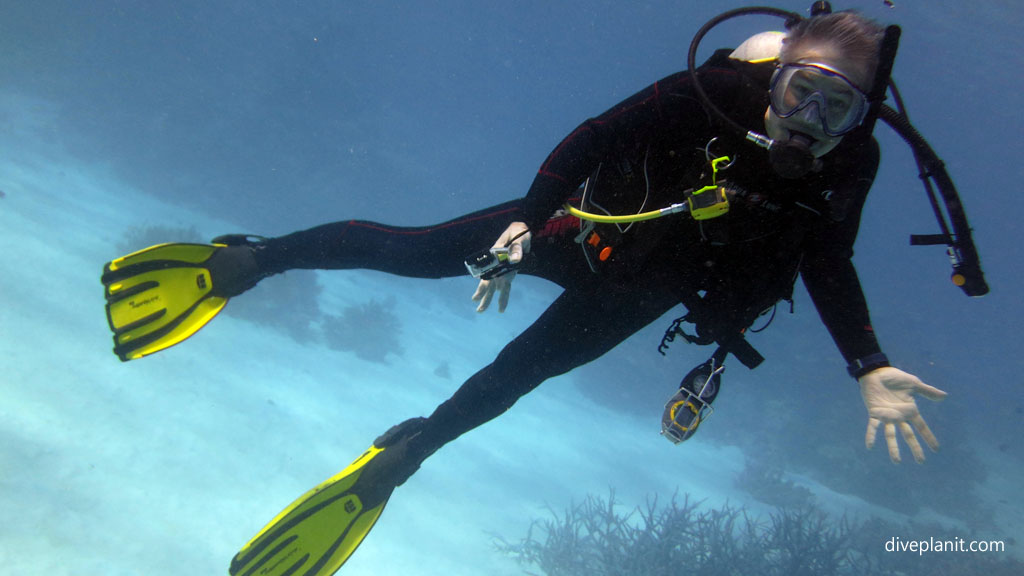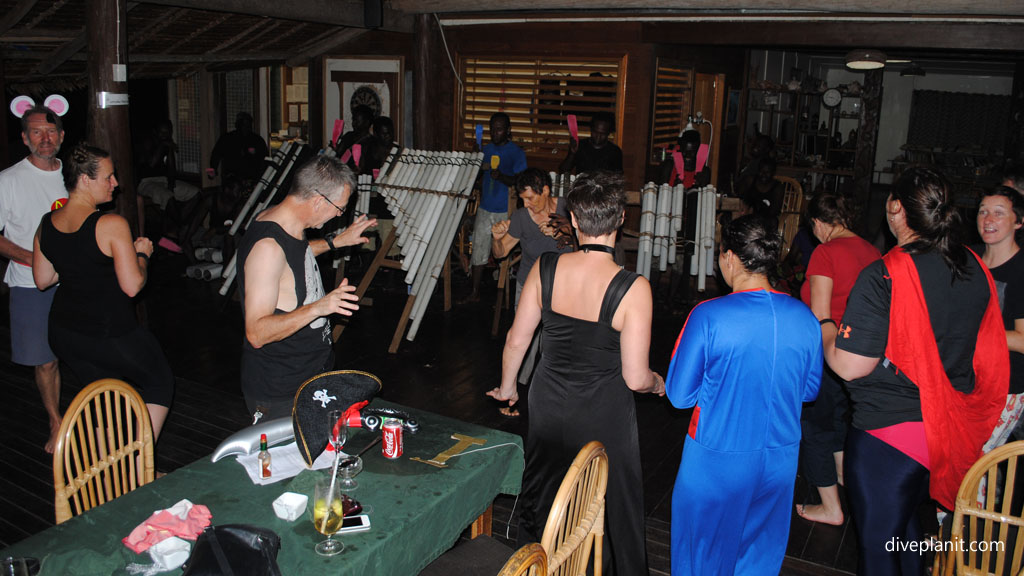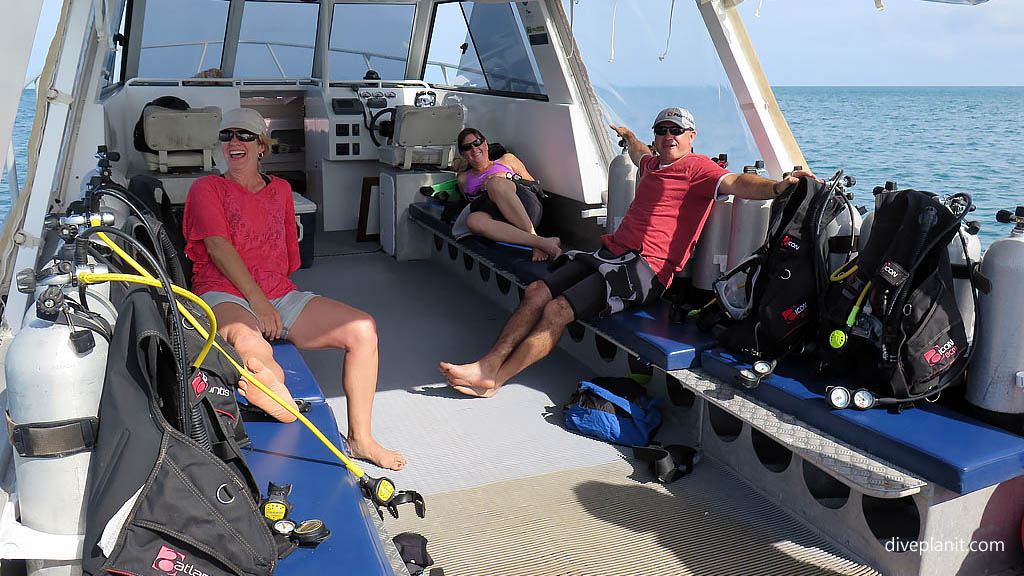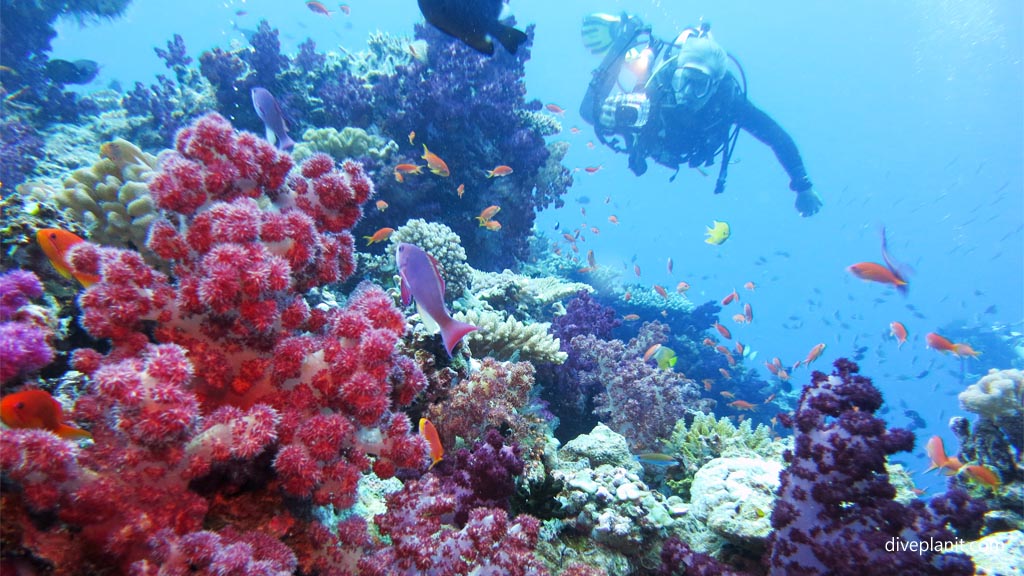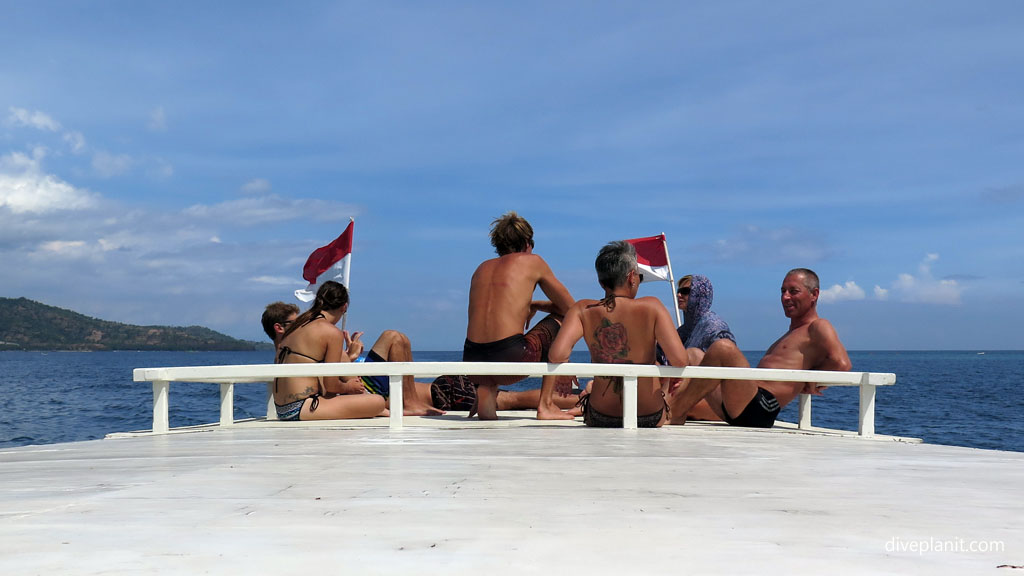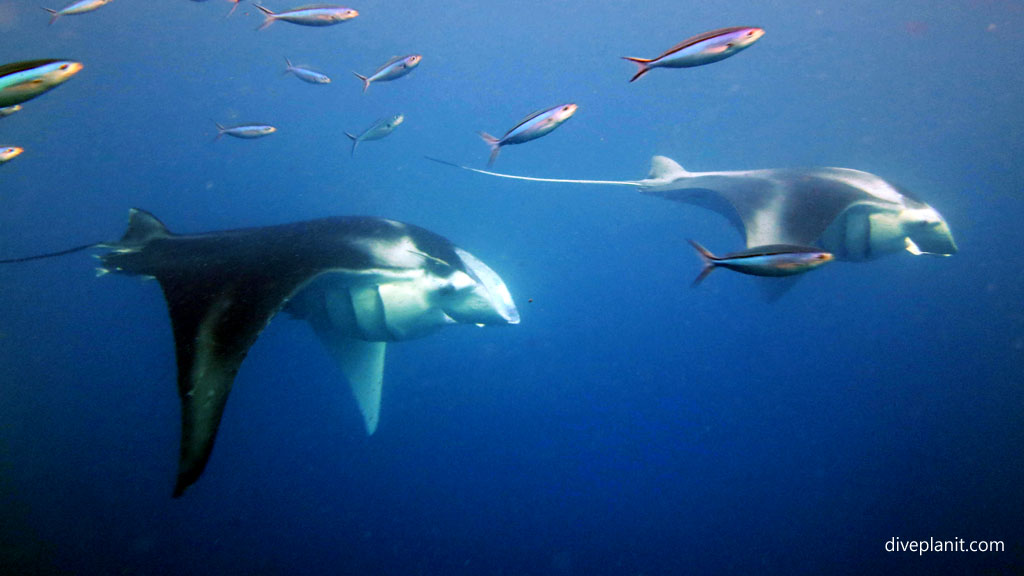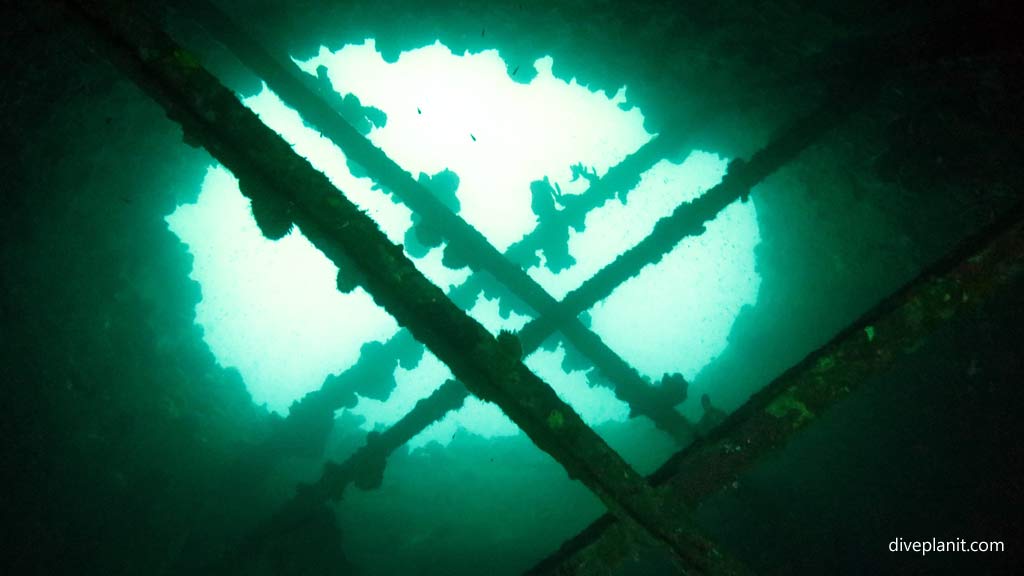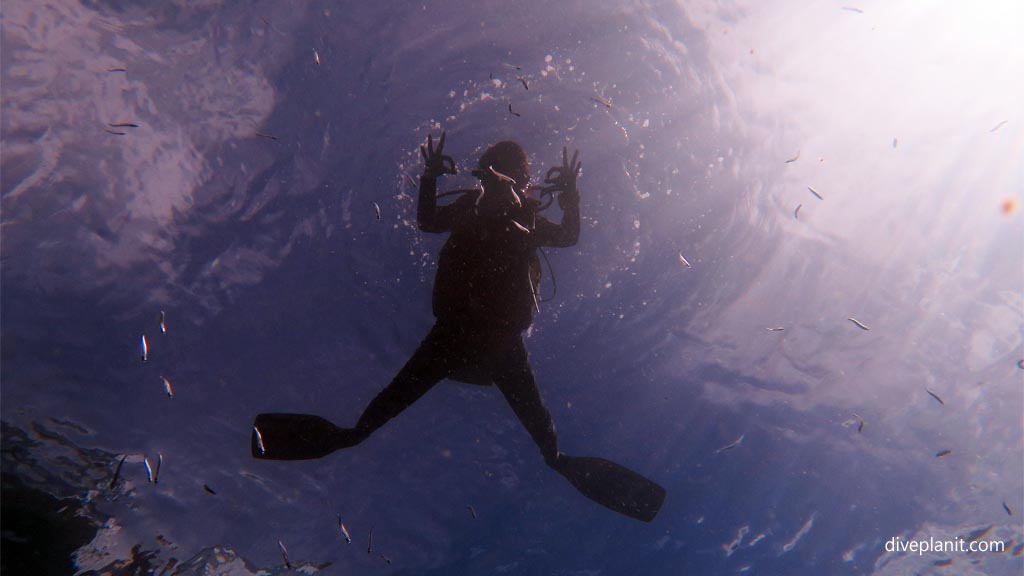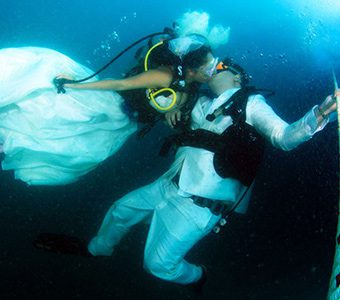What to do, and what NOT to do, to stay safe in the tropics. Guest blogger, Stan Bugg, DAN Asia-Pacific Director and Instructor, presents some top tips, and Diveplanit’s own correspondent Simon, provides the contrasting real life anecdotes, like the time he didn’t do a buddy check and stepped off a boat without his mask on!
In a previous edition Stan proposed ten tips for planning your overseas dive trip. Well, the planning is over, and you have arrived at your tropical dive destination for the holiday of a lifetime. Here are some tips to make the whole experience safer.
None of these suggestions for safe diving should surprise you, but occasionally common sense takes a back seat when you perhaps succumb to holiday mode complacency, or at the other extreme, the urge to cram more into your short trip takes precedence.
1 Stay well hydrated
Says Stan: the link between dehydration and an elevated incidence of DCS is well established. You also put yourself at increased risk of heat disorders. The best hydrating liquid is water. If water purity is suspect or unknown, buy bottled water.
Says Simon: quite often there’s the possibly that you might be ‘out’ all day, and you don’t want to drink too much – because there’s nowhere to ‘go’. Well, the ocean’s always there and the fish don’t really mind. I find taking a big drink at the right time means I have to go over the side at some point in the surface interval – and usually feel a lot better for it.
2 Limit alcohol
Excess alcohol will impair your judgement, promote dehydration, and is thought to increase the risk of DCI. Late night drinking sessions can result in an intoxicated diver on the following AM dive, as well as reducing essential sleep.
Most of us are guilty of this, but it’s not too hard to save the big night until the diving is over.
3 Do a complete equipment check before EVERY dive
This rule is especially important in places where your dive guides assemble your gear for you. As much as it seems like a luxury to have someone else do it, assume NOTHING until you have personally checked. Are all of your straps correctly positioned and tightened? Is your cylinder full? Is your air properly turned on? Are both demand valves working properly? Does your BCD inflate? Are your computers turned on and functioning? Is your mask sealing? Do your torches work? A few minutes pre-entry ensuring that all of your gear is rigged properly, fits comfortably, and is working, is time well spent. Repeat this before EVERY dive. Never assume that your gear is right just because it was OK when you last used it.
Double guilty of this one! I was so relaxed on a dive boat in Fiji, first dive I hopped in without my air turned on; second dive I hopped in without my mask on! Seriously, if someone told me this I would not believe it. I even had my hand up holding my DV – and no mask – in place thinking … something feels a little wrong here, but I’m sure she’ll be right once we get in.
4 Do an extra safety stop
With all of the added risks of DCI for travelling divers, a few extra minutes spent off-gassing in 3-5 metres could be time well spent. Besides, it is rarely a chore in tropical water.
It’s a rare dive in the tropics that doesn’t end on a 5m coral reef with beautiful light and colour. I usually end up stretching that to 5 minutes at 5m – and often grab some of my happiest snaps during that time.
5 Limit sun exposure
Many a tropical trip has been ruined by sunburn, or by problems associated with overheating. Cover up if you are outdoors, and frequently apply sunscreen.
Most dive boats have shade, and it might feel cooler, and be cooler, on the top deck in the breeze, but limit your exposure to the sun.
6 Have a half day off mid-trip
Multi-day diving has been identified as a potential risk factor for DCI, as your levels of residual nitrogen never have adequate surface time to drop back to normal. Give your body a chance to re-set itself by having a scheduled break. This break takes on even more importance if your diving program has you doing four or more dives in a day.
Even on a live aboard, there will be day trips. Remember that you’re visiting a destination, not just its ocean. There’s always an Orang Utan / Lemur / Tarsier / Komodo Dragon / or some kind of blue balled monkey experience to excuse a day off from diving.
7 Dive within the limits of your training and experience
Stick to depths and profiles you know you are capable of doing. Unless you are suitably trained, limit overhead diving.
Guilty again. No one told me I’d needed Nitrox Certification before I went to see the mantas in Palau! I ended up reading the manual on the plane and doing the written exam in the transit lounge. If you know you’ll be doing deeper diving on holiday, get a few deep dives in before you go to re-familiarise yourself with how it affects you.
8 Don’t scare yourself…or anyone else
If you do, you are diving in an unsafe manner, and you are inviting problems.
Now that is just common sense
9 Know when to say NO
If a dive sounds beyond your capability, it almost certainly is! Do not be influenced by peer pressure, or bullied by dive guides. Be assertive in speaking out if the operators or your fellow divers are trying to persuade you into dives that exceed your abilities and your levels of comfort. These could include dives that are deeper than you want to go, dives in current, or dives into overhead environments such as wrecks and caves.
Our first dive on one particular overseas dive trip was a negative entry into raging current. The negative experience put one of our group off diving for life. Remember that we dive for fun! Not because it pushes us to the edge!
10 NEVER overrun your safe limits
When you reach your air cutoff point or your agreed bottom time, declare it to your buddy and the dive leader, and begin your ascent. Resist any peer pressure to extend your dive beyond what you believe to be safe limits.
Sometimes the dive seems painfully short, but we all know when it’s time to go. Rather than endangering yourself and others by pushing the boundaries, stay dive fit, control your breathing and be a master of buoyancy to maximise dive time.
An overseas trip should be a hugely enjoyable and memorable adventure. Help to make it so by being sensible about known risk factors that could lead to bad experiences. Learn more about why being a DAN member is a good idea, or engage with DAN via their Facebook page.

